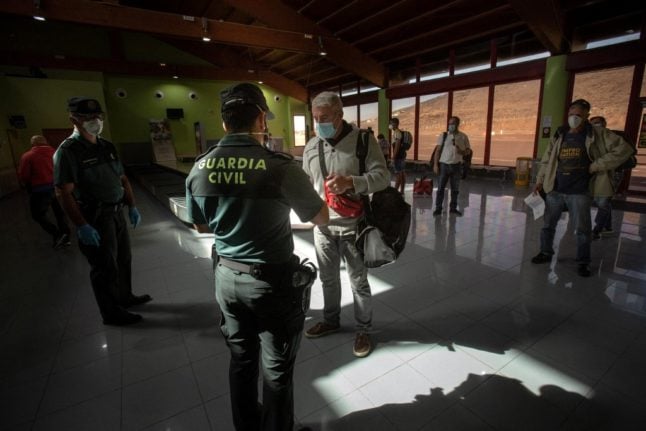Europeans who are not vaccinated should have access to free PCR tests for travel, according to Juan Fernando López Aguilar, the Spanish MEP who’s leading the European Parliament’s negotiations for the launch of the Digital Green Certificates, or Covid passports.
The EU hopes to introduce their so-called Digital Green Certificates in June, just in time for the summer season. According to the European Commission website, they will have information on whether a traveller has been vaccinated or not, if they have received a negative test result or if they have recovered from Covid-19.
Those Europeans who are not vaccinated or who have not had Covid, will however still have to present a negative PCR test in order to travel between EU countries, and Aguilar is arguing that these must be free.
“We are currently negotiating the measures, some of which I think we can find a broad consensus for,” Aguilar told Spanish newspaper El Confidencial.
“The first point we’ll tackle is making PCRs free of charge.
“We are against the economic discrimination PCRs bring.
“They are very expensive, prohibitively so for interns or students. PCRs have to be free of charge.
“Without freedom of movement there will be no social and economic recovery”, Aguilar concluded, while admitting that getting all EU countries to agree with the proposal will not be easy.
According to Aguilar, the privacy of citizens’ data and free PCR tests were the two most important issues being discussed during the implementation of these new certificates.
Spain’s Valencia and Balearic regions also call for free PCR tests
The president of the Generalitat of Valencia, Ximo Puig, and the president of the Balearic Islands, Francina Armengol, agree with Aguilar’s stance and have both demanded that the European Union finance free PCR for EU citizens who want to travel this summer so that they do not become a “limitation” due to their high prices.
“If vaccines are free, within the European social space, PCRs should be too”, pointed out Puig, with the aim of “guaranteeing the possibilities” for all people and facilitating mobility “in complete safety”.
“They must be free and financed with European funds, so that citizens can travel to another country,” Puig continued.
Unlike the free vaccines PCRs currently cost about €100 in private laboratories in Spain, and on popular dates when many people travel, such as last Christmas, they rose to around €150 or €160 .
The EU is currently in discussions as to the final format of this certificate, but the European Parliament has already decided that they want to change its name to “anticovid certificate” instead of Digital Green Certificate, so that it is more understandable for citizens, said Aguilar.
READ ALSO:



 Please whitelist us to continue reading.
Please whitelist us to continue reading.
Member comments